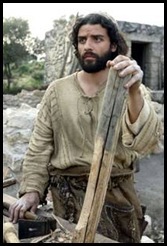 From time to time I receive random questions from people I don’t even know. One from yesterday went as follows:
From time to time I receive random questions from people I don’t even know. One from yesterday went as follows:
“Does Trinity Bible College hold the position that the four Gospels can or cannot be perfectly harmonized into one account?”
And my brief response (that I thought could be of interest to some who follow this blog) after letting the individual know that Trinity does not have any official position on this:
The four Gospel accounts can be harmonized with one another, but must also be allowed to remain distinct voices from one another. This has been the historic response to such ideas. Irenaeus in the second century contended for the necessity of the four distinct accounts that each in their own ways reveal Jesus as God’s self-revelation and belong being heard together (though as individual voices). Tatian (another second century Church father) attempted a harmony as the text of the Syriac Church (it was called the Diatessaron), but this was rightly rejected by the wider Church as failing to allow for the distinctions of each individual Gospel account. In other words, I would say that while we believe that the Gospels do not actually contradict one another they remain as differentiated testimonies to Jesus that should be honored as distinct witnesses.
